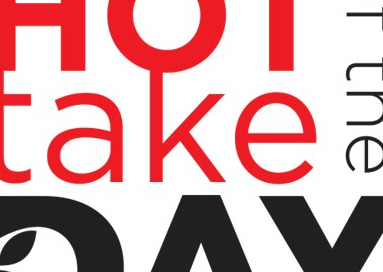Yesterday at CERAWeek in Houston, Energy Secretary Chris Wright took the stage, and if you’re paying attention, he’s sending a crystal-clear message to American oil producers: slow down, or risk ruin. I’ve said it before—Chris Wright is one of the sharpest minds in energy. I’ve had him on my podcast, written about him, and even swapped ideas with him back when he still might’ve been reading my stuff. As Trump’s Energy Secretary, he’s proving why he’s the perfect pick for this moment. His remarks today weren’t just about “Drill, Baby, Drill”—they were a calculated signal to U.S. companies to ease off the throttle, protect their balance sheets, and let natural declines do the heavy lifting.
I wrote a few weeks ago in “Drill Baby Drill” that this administration’s energy policy isn’t about domestic oil and gas—it’s international. Lowering oil prices isn’t about flooding the market with American crude; it’s about outmaneuvering global players like OPEC+ to make them the enemy. And the only way to fix it? The Saudi wealth fund invests $1 trillion in the U.S. economy. No more LIV is bad!! Only open access to the most important economy in the world. But I digress and am getting through months ahead of myself. More on that as it unfolds.
Mr. Wright hinted at this today, saying U.S. shale can keep producing even if oil hits $50 a barrel—he knows we can’t. He’s one of the smartest people I know. Trump knows he’s one of the smartest people he knows. I promise you, President Trump knows what I know and want Mr. Wright knows. Posts on X from the conference quote him emphasizing lower oil prices as “in the best interest of the American people, and honestly, the citizens of the world.” That’s not bravado; it’s a warning.
Here’s the subtext. Wright knows U.S. production is at a record 13.5 million barrels a day, but he also knows the cracks are showing. Tier 1 inventory is drying up. The DJ Basin is a mess—Civitas Resources stock is getting hammered as Colorado tightens the screws on permits. Chevron’s shuttered its Denver office, and Oxy isn’t far behind.
The Bakken? Marginal at best and in decline. Eagleford? It’s done. Lengthening wells isn’t the silver bullet it once was. Wright’s too smart to miss this. He’s telling producers: if you keep chasing completions and acquisitions, you’ll drill yourself into bankruptcy if prices tank. And they *will* tank—down to $50, if he and Trump get their way. But they can’t, because like Nvidia and Tesla’s valuation, reality eventually catches up and oil needs to be $80 not $50 for the industry here, and everywhere to survive.
So why is Mr. Wright saying this? Because this isn’t about oil for oil’s sake—it’s about the economy. Slash oil prices, and you kneecap inflation. You ease recession fears. You give the Fed room to cut interest rates, which we’ve been hammering on for weeks as the real endgame. Mr. Wright’s not begging companies to pump more; he’s daring them to do nothing. Let production slip 2 million barrels a day over the next six months—natural declines will handle that if they just sit tight. The best move in a commodity bust is to wait it out, not fight the tape. Management can ignore him and drill at a loss, but we’ve all seen that movie end in tears.
Mr. Wright’s CERAWeek moment is a chess play. American producers aren’t the only ones listening—OPEC+ is too. By signaling $50 oil is survivable, he’s putting pressure on international rivals to blink first and make THEM the enemy. It’s bold, it’s brilliant, and it’s exactly why I’m a massive fan. Producers, take note: sit back, let it play out, and live to fight another day. It’s COVID 2.0, only this time with practice and the hottakeoftheday to guide you (again).




It looks like operators are catching on and paying attention - at least to some degree. The rig count is stable and not skyrocketing. The replacement of production volumes and reserves with new drills is on the same pace as last quarter it appears. The intervention activity is increasing slightly and that won’t really impact overall daily production volumes but can help profit for individual properties. All in all we still need regulatory burden relief - not just cost, but bureaucratic processing relief.
The direction Chris Wright is pushing toward will work out this year, be patient and don’t make any mistakes.
DRW at his finest! Glad you are back pal. It just isn’t as fun without your wit.